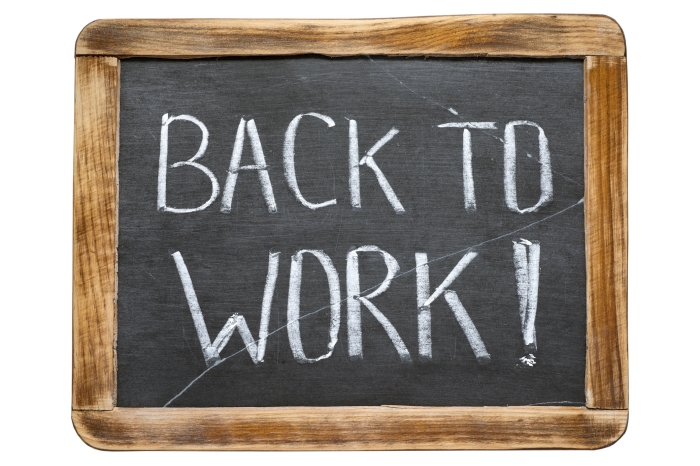In the digital age in which we live, the internet has taken over. Most of…

Returning to Work After Mental Health Treatment
One in four people will experience some kind of mental health problem and subsequently require time off work in the course of a year. Despite this statistic, negotiating a return to work can be difficult for most people. Lack of understanding, as well as stigma and discrimination around mental health all combine to make returning to work after mental illness overwhelming and stressful. At Psylegal, our professional depression psychologists in Melbourne are experienced in providing effective depression treatments and helping people return to work. Read on for our tips on how you can help make the transition easier.
Take Care of Yourself
Understand that you are not selfish for taking care of yourself. Ensure you get enough sleep, eat a well-balanced and nutritious diet including foods such as high-quality protein and vegetables, exercise on a regular basis, and keeping in contact with friends and family. Take time out for ‘me time’, whether that’s meditating, going for a walk or relaxing in front of the television. To be the best version of yourself at work and at home you need to put your needs first and focus on your well-being.
Talk to Your Manager
Arrange a meeting with your employer or manager to discuss anything that concerns you about returning to work.
You may wish to talk about:
- Return to work plan – when and how you will return to work
- Flexible hours – If you are wanting to return part-time, change your working hours or discuss working from home possibilities
- Updated job responsibilities or reduction in workload
- Support from a colleague in the short or long term
- A place you can go for a break when needed
Discussing these things before you return can significantly ease any anxiety that may have a negative effect on your mental health situation.
Keep Your Mental Health Issues Private at Work
It’s likely that colleagues will ask questions upon your return, it’s your right to keep all details private. It’s important to keep healthy boundaries and that includes deciding how and when to share information about yourself with others, especially when it involves a crisis experience. While it’s best not to tell people exactly what you’re dealing with, being prepared with a simple narrative can help. A short phrase like “I took time off for health/personal reasons, but things are fine now and I’m happy to be back to work” will help you deal with any questions you may get.
Return to Work Gradually
It’s important to ease back into work and not head straight back into the situation which may have triggered your mental health crisis in the beginning. A high workload, long hours, workplace stress and pressure are all triggers for mental health conditions in the workplace so take your time, and set reasonable limits and time frames with your boss.
Don’t Be Afraid to Ask for Help
Mental health crisis situations tend to happen when a person feels overwhelmed, stressed, alone and powerless. Reach out to friends, family, a support group or your depression psychologist to share how you’re feeling. Find a trusted colleague you can talk to if things become overwhelming in the workplace. If you are struggling with workload or workplace pressure, don’t bottle it up, talk to your manager and see if they can allocate tasks to another colleague.
How Work Benefits Your Mental Health
People usually find going back to work after a period of mental illness a positive experience. Despite the fact that work can bring about worry or anxiety for a few people, research shows that for most people, work gives us:
- A sense of identity, purpose and personal achievement
- The chance to build new friendships
- Increased self-confidence and self-esteem
- Better financial security
- An inclination that you’re having a dynamic influence in the public arena
Returning to work after a period of leave can result in significant physical and mental health improvements.
Getting back to work after mental health leave may not be an easy process, but it is so important to your overall health and well-being. If you are struggling with depression it is important to seek treatment sooner rather than later as untreated depression can become chronic or recurrent. Speak to the highly experienced team of Melbourne depression psychologists at Psylegal today and see how we can tailor a depression treatment program for your needs and get you back to into the workplace as quickly as possible.


